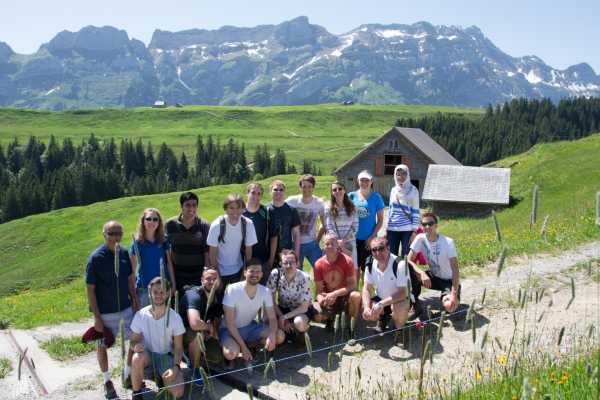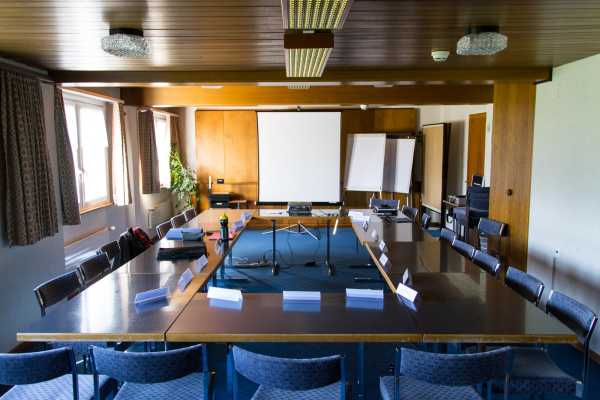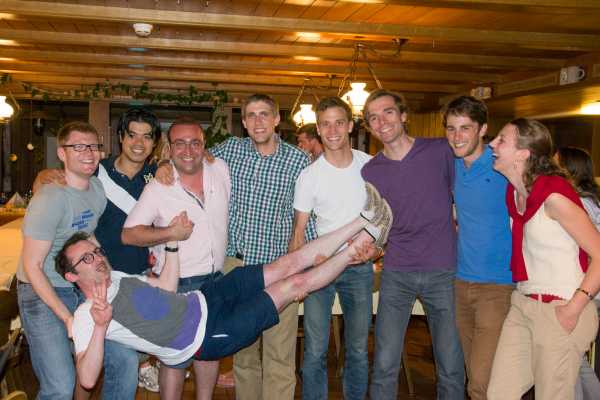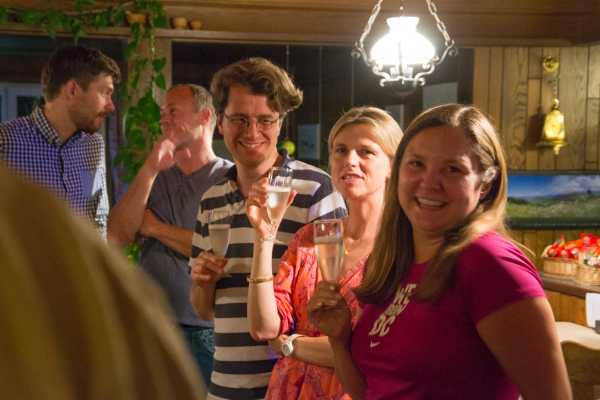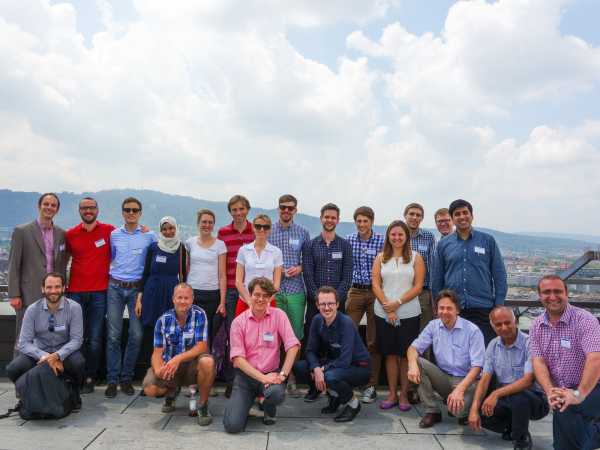ETH PhD Academy on Sustainability and Technology 2014
Toward a Renewable Future? Technological, Organizational and Institutional Change in the Energy Sector
The program is available for Download download (PDF, 125 KB)
June 8-13, 2014, ETH Zurich
Supplying mankind with clean and reliable energy is one of the biggest challenges of our time. Energy is the lifeblood of modern societies. Yet, the current technological dominance of fossil fuel combustion comes with major problems, such as greenhouse gas emissions and the disruption of natural ecosystems. A large number of different actors in both the public and private sphere are therefore undertaking efforts to fundamentally change the way in which we provide and use energy.
Against this background, the seventh annual ETH PhD Academy on Sustainability and Technology is concerned with technological, organizational and institutional change in the energy sector. It provides a unique platform for PhD students with a background in innovation studies, management, economics or political sciences to present their research to an audience of like-minded students and four international faculty with a track record in research on innovation in the energy sector. Participants will obtain detailed feedback on their research design, theoretical approaches and methodology. In addition, there will be plenty of room for informal discussions and networking with other PhD students and professors.
Some impressions

Magali Delmas is currently professor of management at the the UCLA Institute of the Environment and Sustainability and the UCLA Anderson School of Management. Moreover, she is the director of the UCLA Center for Corporate Environmental Performance and UCLA Luskin Scholar.
Magali has written more than 50 articles, book chapters and case studies on business and the natural environment. Standing at the crossroads of policy and management, Magali Delmas’ research focuses on the various interactions between environmental policy and business strategy at the national and international level. Delmas' current work includes the analysis of the effectiveness of firms' voluntary actions to mitigate climate change and the investigation of the barriers and incentives to the adoption of energy efficient solutions. She is also engaged in refining current methodologies to measure and communicate firm’s and products’ environmental performance.
Magali obtained a Ph.D. in Business Policy and Strategy at the HEC Graduate School of Management in Paris. She worked as consultant at CM International in Paris, and DG Industry at the European Commission in Brussels.

Joanna Lewis is an assistant professor of Science, Technology and International Affairs (STIA) at Georgetown University's Edmund A. Walsh School of Foreign Service. Her research examines technology acquisition and innovation strategies for energy leapfrogging, drawing from cases of renewable energy development in the emerging economies. Focused primarily on China, her work combines approaches from energy systems and policy analysis, global environmental politics, and technology transfer and innovation studies.
Joanna also serves as an international adviser to the Energy Foundation China Sustainable Energy Program in Beijing, and is a Lead Author of the Intergovernmental Panel on Climate Change’s Fifth Assessment Report. She was a member of the National Academies Committee on U.S.-China Cooperation on Electricity from Renewables and has consulted for many domestic and international organizations including UNIDO and USAID. She serves on the Advisory Boards of the Asia Society's Center on U.S.-China Relations and the American Council on Renewable Energy (ACORE)’s U.S.-China Program.
Previously, Dr. Lewis was a Senior International Fellow at the Pew Center on Global Climate Change and a researcher in the China Energy Group at the U.S. Department of Energy’s Lawrence Berkeley National Laboratory. She served as the technical director for the Asia Society’s Initiative for U.S.-China Cooperation on Energy and Climate, and has also worked at the White House Council on Environmental Quality, the National Wildlife Federation and the Environmental Defense Fund.
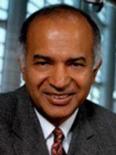
Raghu Garud is Alvin H. Clemens Professor of Management & Organization and the Research Director of the Farrell Center for Corporate Innovation and Entrepreneurship, Pennsylvania State University. Before joining the Smeal College, Raghu Garud was at the Stern School of Business, New York University. He has been a Fellow of the Sydney Sussex College, the University of Cambridge, and has been a visiting scholar at the Copenhagen Business School, the University of Bologna, the University of St. Gallen, Helsinki University of Technology and the Singapore Management University. Raghu earned a Ph.D. degree in Strategic Management and Organization from the University of Minnesota.
Raghu's research specifically focusses on how new ideas emerge, how they are valued, and how they are commercialized. He has written extensively on these topics offering concepts such as path creation, economies of substitution, technology entrepreneurship, bricolage as a collective process and the socio-cognitive bases for technology emergence. In his research, Raghu has explored modularity and the emergence of architectures in systemic industries.

Volker Hoffmann is an associate professor for sustainability and technology at the Department of Management, Technology, and Economics of ETH Zurich.
He received a diploma in chemical engineering from ETH Zurich in 1997 and a diploma in business administration from the University of Hagen, Germany, in 1999. In 1996/97 and 1999/2000 he worked as a visiting scholar and scientist at MIT where he investigated uncertainty propagation in large scale process models for the chemical industry (group of Gregory J. McRae). In 2001, he obtained his Ph.D. from ETH Zurich with a thesis on multi-objective decision making under uncertainty in chemical process design (group of Konrad Hungerbühler). Before joining the faculty of ETH Zurich in 2004, he was a project manager at McKinsey & Company where he worked in the chemical and electricity industry. He focused on strategy development for European utility companies, especially in the light of upcoming greenhouse gas regulations. During his career, Volker Hoffmann received several scholarships and awards including a German National Academic Foundation Scholarship (1994-97), an Ernest-Solvay-Scholarship (1996/97), and an Exchange Fellow Scholarship of the Alliance for Global Sustainability (1999/2000).
Volker Hoffmann's research at ETH Zurich centers on corporate strategies with respect to climate change, with a focus on climate policy and innovation. Recent research results are being published in journals such as the Journal of Management Studies, Global Environmental Change, Climate Policy, Energy Policy, the Journal of Industrial Ecology, the European Management Journal, Business Strategy & the Environment, Policy Sciences, Environmental Science & Policy, and Ecological Economics.
This academy was supported by
- ewz: Zurich Municipal Electric Utility
- VRD Stiftung für Erneuerbare Energien
